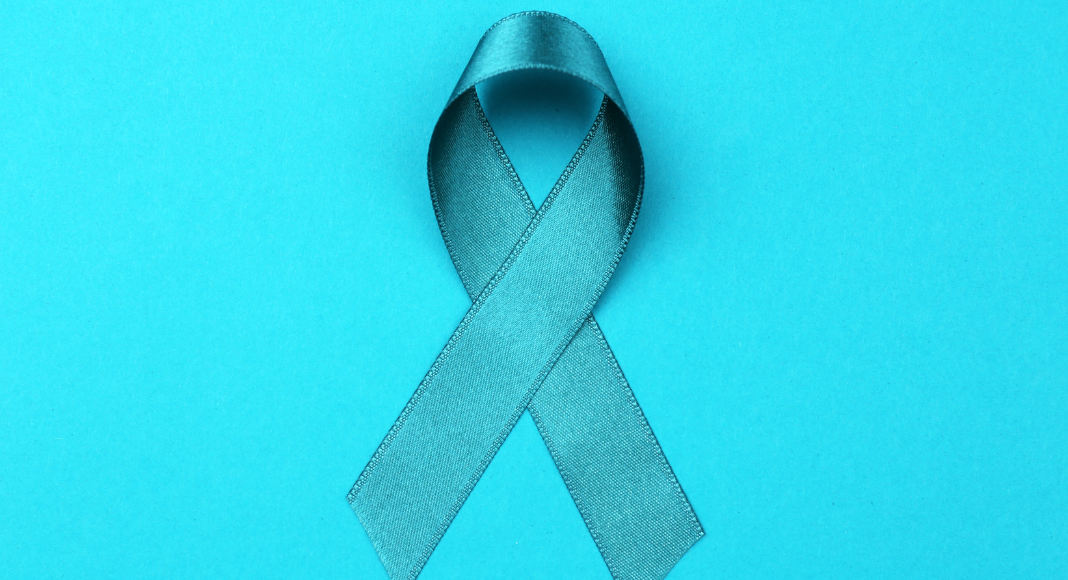
The American Cancer Society (ACS) estimates that ovarian cancer accounts for 2.5% of cancers in women. Over the course of her lifetime, a woman has a 1 in 78 risk of developing what is categorized by the ACS as the deadliest of gynecologic cancers and a 1 in 108 lifetime risk of not surviving an invasive form of ovarian cancer.
Unfortunately, my own mother was 1 in 108.
The month of September is Ovarian Cancer Awareness Month. My mother was first diagnosed when she was only 55-years-old, and her symptoms were very vague and not cause for concern. We were not familiar with the signs of ovarian cancer, nor did we know to ask for this to be looked into further. All my mother knew was that she was feeling very full and bloated, and had to use the restroom a lot. This was nothing that she felt was cause for alarm until one night, she woke up and couldn’t breathe and my father had to rush her to the emergency room. After spending days in the hospital, the answer finally came: she had a mass on her ovary. The reason she could not breathe was because her abdomen was full of fluid and this was pushing into her lungs.
For the next eight years, my mother fought ovarian cancer on and off with recurrence after recurrence until ultimately, she succumbed to it in May of 2019 at the age of 62. Had this type of cancer not impacted my life so closely, I most likely would still be unaware of the symptoms and available screenings for ovarian cancer. But it did, and I do know what to look for and what to ask for if something feels off with my body.
To honor my mother’s legacy and to help raise awareness, here are the signs and symptoms of ovarian cancer:
First of all, as I mentioned, my mother thought nothing of her early symptoms. This is why only about 20% of cases of ovarian cancer are diagnosed in the early stages (I-II); often, the signs and symptoms can be easy to miss, hence the whispering. Your ovaries are located deep within the abdominal cavity and can be mistaken for other health issues. Symptoms don’t appear until the cancer is in its advanced stages (stages III-IV).
Common symptoms of ovarian cancer include:
- Bloating: swelling in the lower pelvis or abdomen; clothes around the waist may feel tighter than normal
- Pelvic or abdominal pain: pain in abdomen, back or pelvis
- Trouble eating or feeling full quickly: feeling full after eating only a few bites or complete loss of appetite
- Urinary frequency: feeling the need to urinate more frequently
Less common symptoms of ovarian cancer:
- Pain during intercourse
- Back pain
- Fatigue
- Menstrual changes
- Upset stomach, heartburn, or constipation
Bottom line: you know your body better than anyone and you know if something feels off. You know what is normal for you. You are the only one who can advocate for yourself and for your health. If the above symptoms do not go away within two weeks with normal interventions such as rest or changing your diet and exercise, contact your doctor immediately.
There is no effective screening for ovarian cancer.
That’s right; you read that correctly. A cancer that is as deadly as ovarian cancer does not have an effective screening, which is part of the reason why I am writing this post. I want to raise awareness and let you know which screenings to ask your doctor to give you. A pap smear will not detect ovarian cancer.
If you have signs and symptoms or someone you know does, the following tests are available:
- Pelvic exam: this checks for an enlarged ovary or signs of fluid in the abdomen.
- Transvaginal ultrasound: just like you get in the early stages of pregnancy, this is useful for anyone that is at increased risk for ovarian cancer or someone with an abnormal pelvic exam.
- CA-125 blood test: this measures your level of CA-125, a protein found in higher levels in women with ovarian cancer. This is an important test, but not a key marker for the disease.
Despite the lack of a reliable screening test, research in that area is ongoing; additionally, many charities are working tirelessly to improve quality of life for survivors, prevent and cure ovarian cancer, and connect survivors and caregivers all over the world so they feel a sense of a belonging in a community that none of them asked to belong to. If you’re interested in more information, visit National Ovarian Cancer Coalition (NOCC) and Ovarian Cancer Research Alliance (OCRA).




















An amazing article with an abundance amount of information to adhere to precautions..
Thank you for sharing…